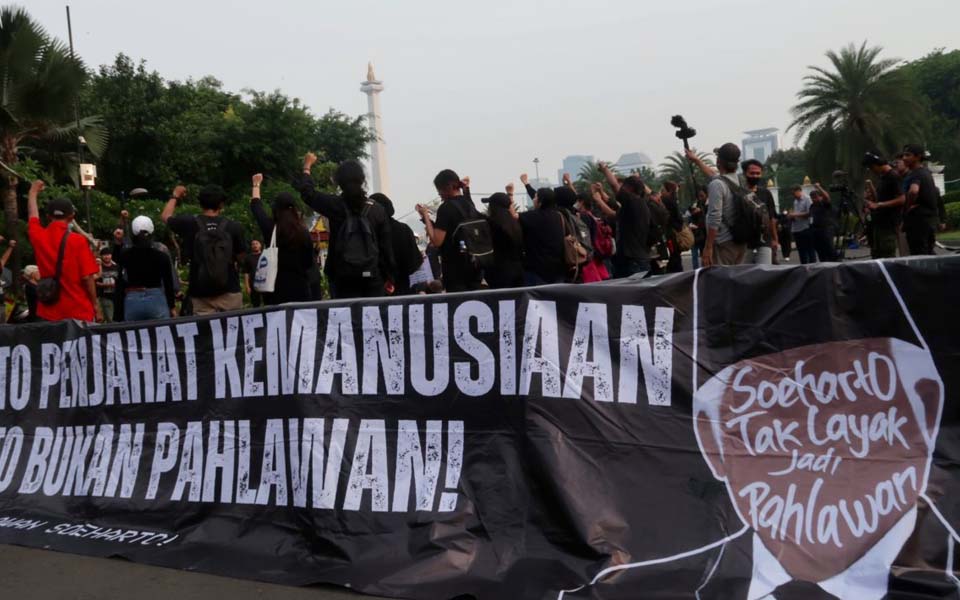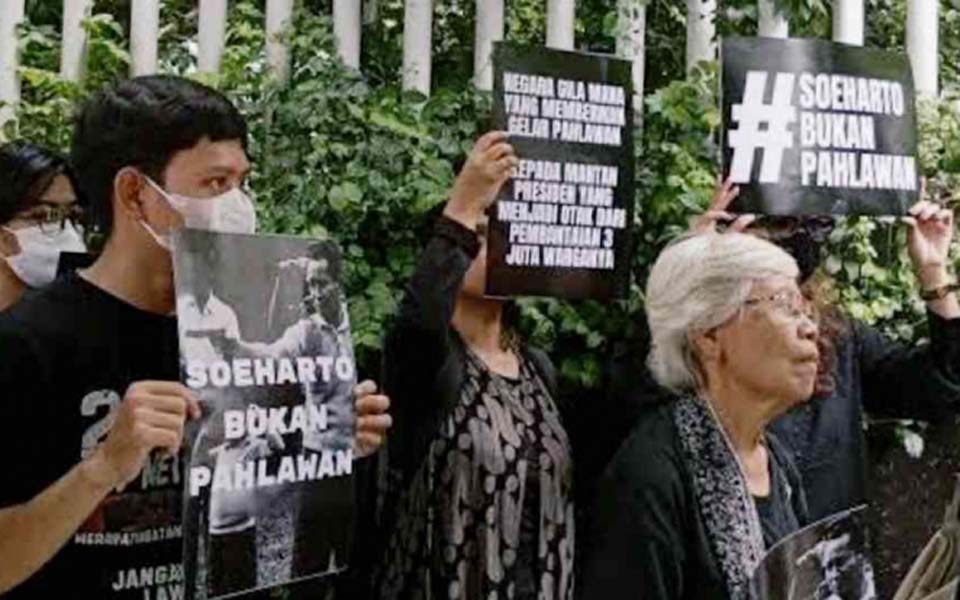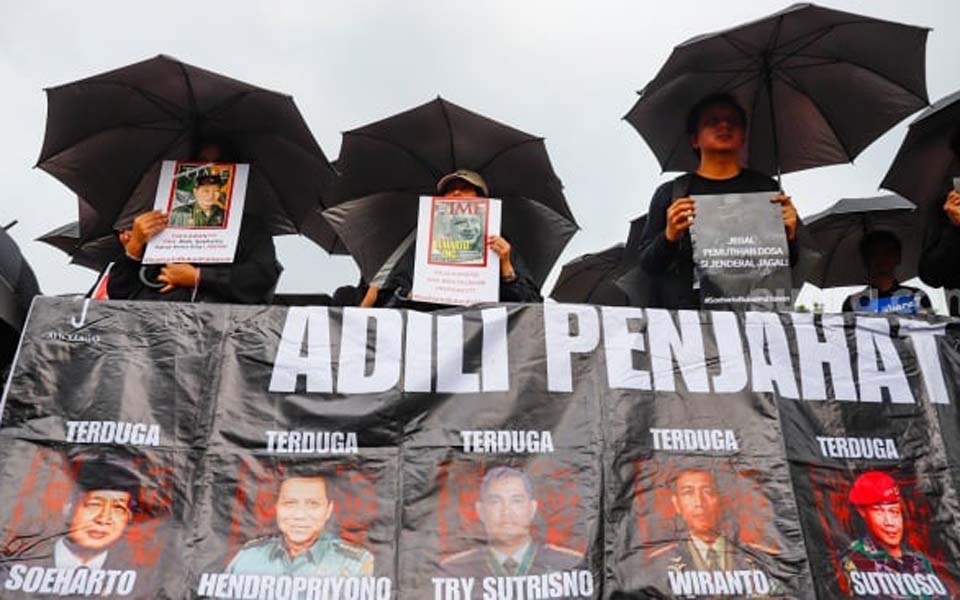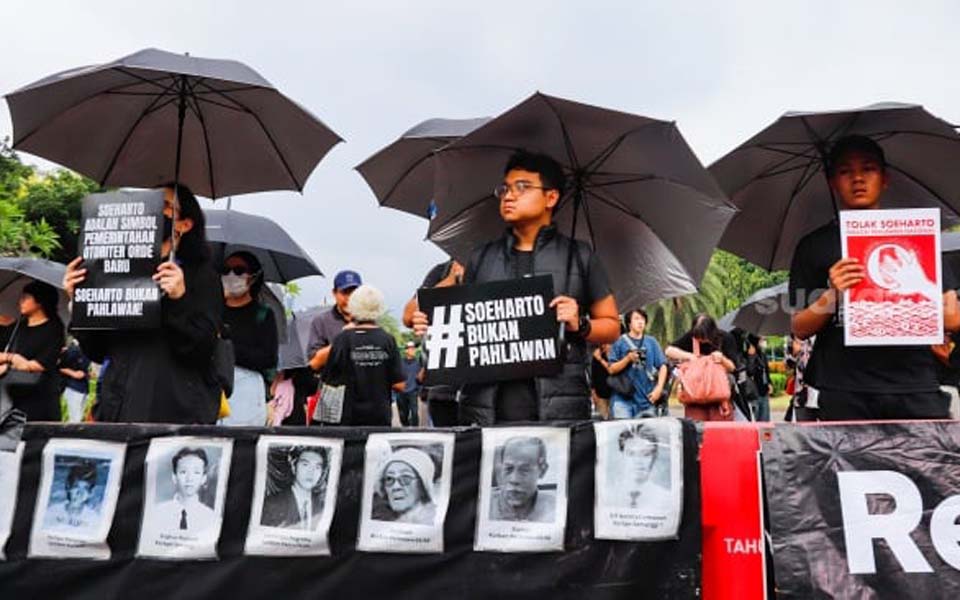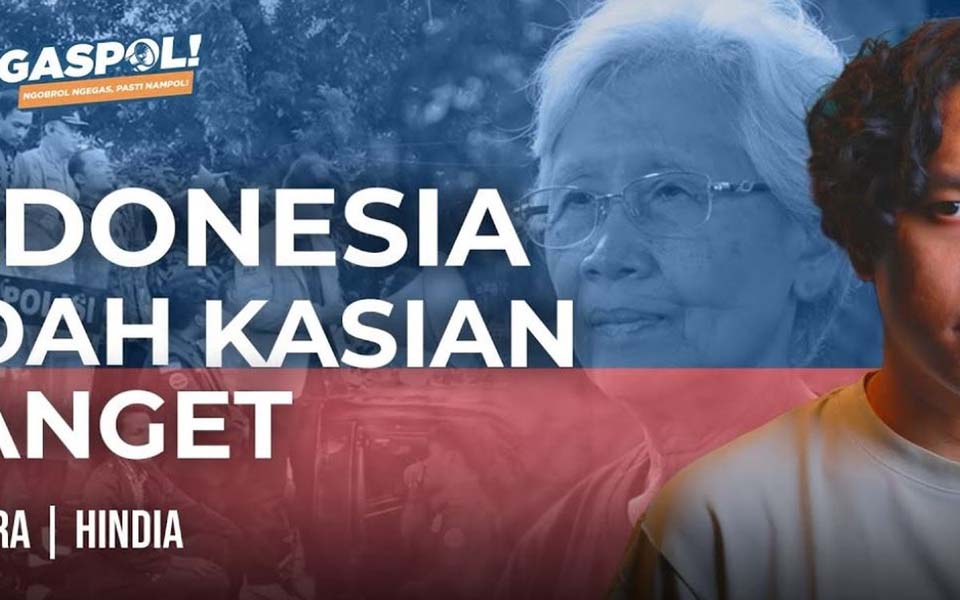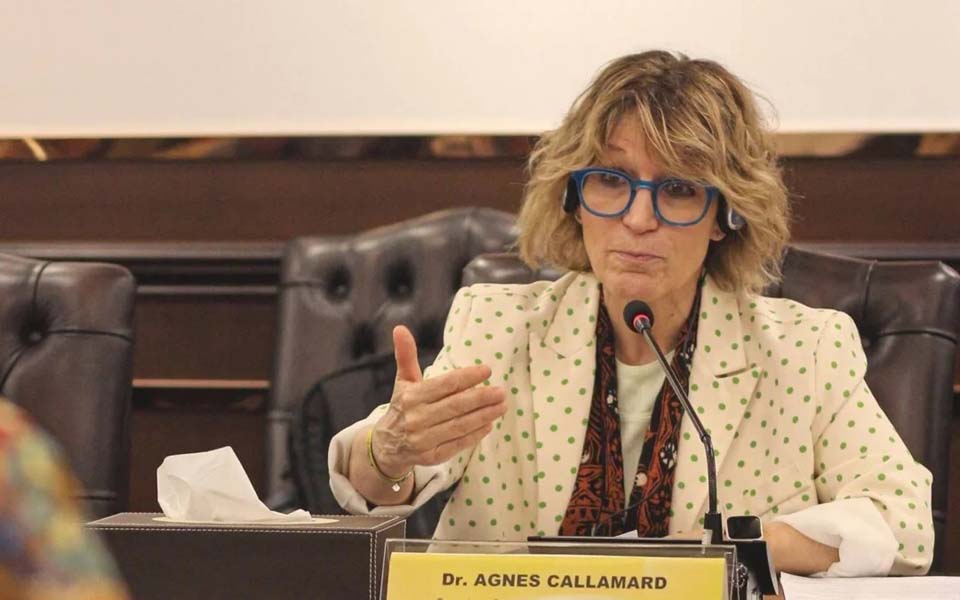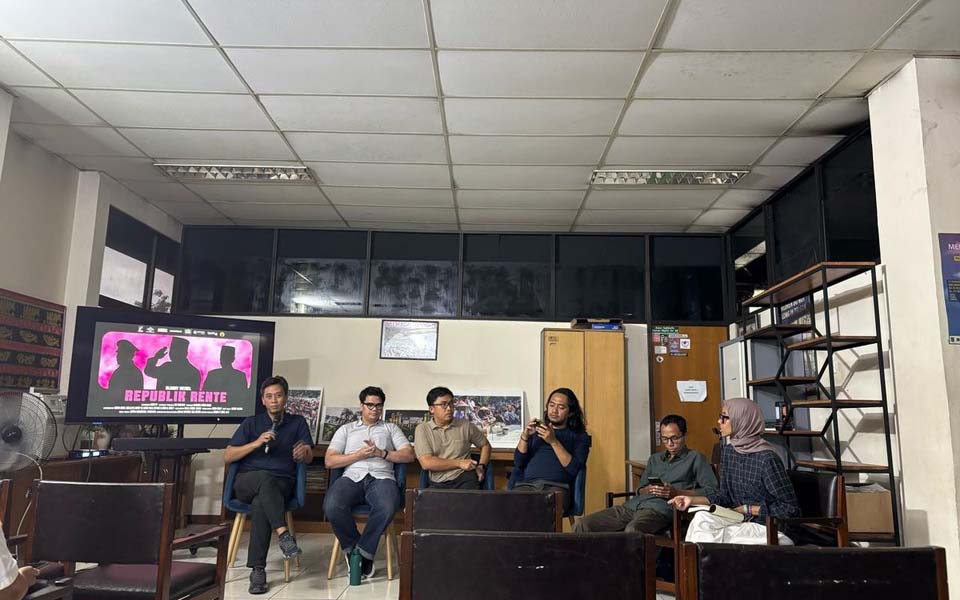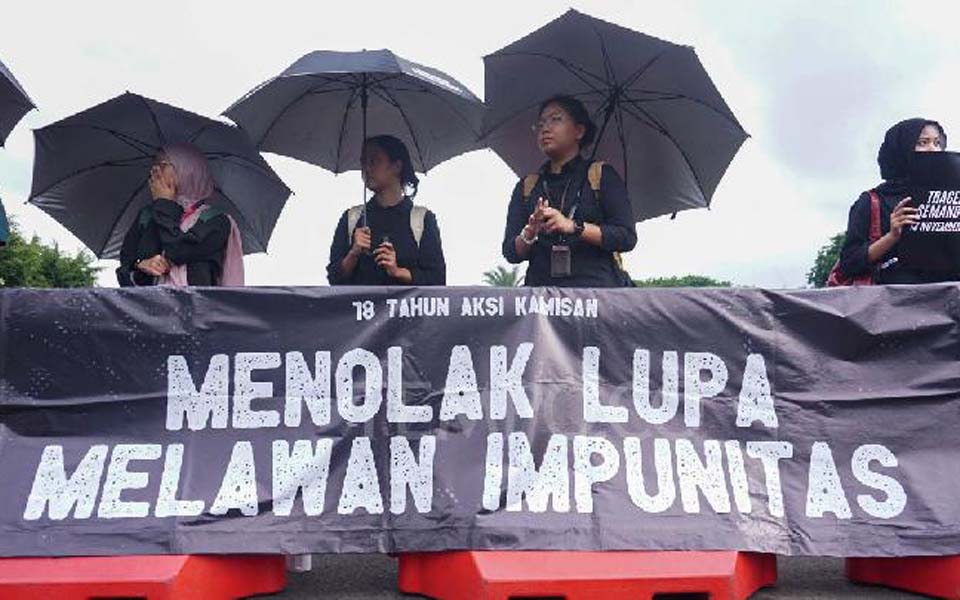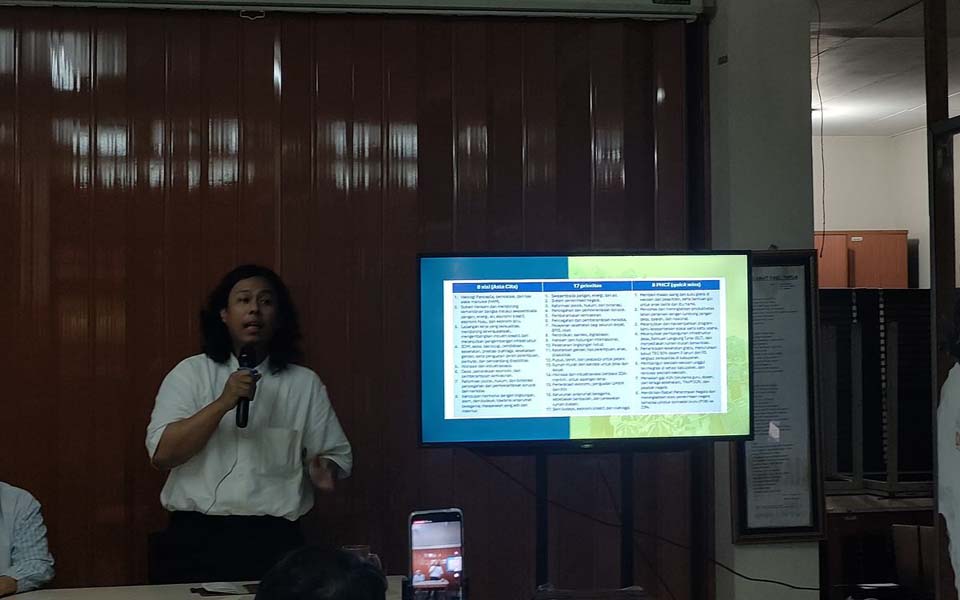Fransisca Ria Susan, Jakarta – The kidnappings, forced disappearances and killing of more than 1 million Indonesians between 1965-1967 were not a tragedy, because they did not occur as part of a two-sided conflict. The killings were carried out by one side, were planned, systematic, and were given the go-ahead by an official government body to occur.
This is the conclusion that emerged from a teleconference called “Historical Justice in Confronting the 1965 Tragedy” that was held by The University of Melbourne in conjunction with the Driyarkara College of Philosophy, Jakarta, on Friday (30/8).
This teleconference also included several speakers located in Vancouver, London and Copenhagen. It included historians, military specialists, intellectuals and academics interested in the 1965 affair, including Kate McGregor, Jess Melvin, Max Lane, Djin Siauw, John Roosa, Asvi Warman Adam, Hilmar Farid, Bonnie Triyanya, Stanley Prasetyo and director of The Act of Killing, Joshua Oppenheimer. Also present was Nani Nurrachman, daughter of Major General Soetojo (one of the generals whose bodies were discovered down the well in Lubang Buaya in October 1965) as well as survivors from the 1965 affair.
Hilmar Farid in his presentation explained the need for a human rights report on 1965 that can be relied upon. Without such a report, denial about the killings will continue. “We need to convince the public, who remain in denial,” he said.
Hilmar observed how in the public space, denial about the truth about what happened takes several forms. One form includes denying that the killings ever occurred, or by saying that that the killings occurred on both sides.
However, there was no war at this time. There was not two sides attacking each other, just one. “So it was not a tragedy, it was not a conflict, but a massacre,” explains Hilmar. Before this, John Roosa expressed the same sentiment. “There was no war”, he explained.
Former National Human Rights Commission (Komnas HAM) commissioner Stanley Adi Prasetyo explained how Komnas HAM’s findings into the 1965 killings clearly explained how the state was involved in the killings. The Operational Command for the Restoration of Security and Order (Kopkamtib) – an institution directly responsible to President Suharto at this time – was fully responsible for the affair.
“The ‘receipting’ (pengebonan, the borrowing of prisoners – ed), torture, rape and killing occurred at detention centers and Chinese schools that were converted into detention centers”, Stanley explained.
The 1965-1967 killings, in Stanley’s opinion, fulfill nine out of the 10 types of human rights abuses. “The only element that was not fulfilled was (discrimination based on) skin colour, he said.
Say sorry
Joshua Oppenheimer, based in Copenhagen, in his address to the teleconference, put pressure on President Susilo Bambang Yudhoyono to issue an apology for the killings. “The people of Indonesia must demand the President issue an apology. What occurred at that time was genocide, it was wrong,” he said.
He explained how such an apology could become the basis for a Truth and Reconciliation Commission. “Without (knowing the) truth, there will be no reconciliation,” he explained.
His film “The Act of Killing” has stirred up controversy by telling the story of Anwar Congo, who was involved in operations to kill PKI cadre in 1965-1967. Joshua has been able to strip bare how these killings were indeed carried out in a coordinated and systematic manner.
Joshua has explained how the film is his attempt to open the eyes of the world to what happened in Indonesia at this time. “Such things cannot be allowed to happen again,” he says.
The film, in Joshua’s opinion, holds a mirror up to us all. “Not only Anwar Congo, but all regimes, and indeed all of us,” he explained.
He is aware that even today many people in Indonesia are scared to talk about the killings. Reconciliation, in his opinion, can only occur if we are brave enough to confront our fears by teasing out the true facts of what happened. (Inno Jemabut)
[Peristiwa 1965 Bukan Tragedi – Sinar Harapan. 2013-8-31. Translated by Jess Melvin for the Indoleft news service.]






